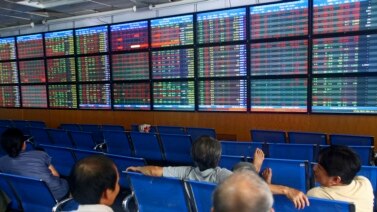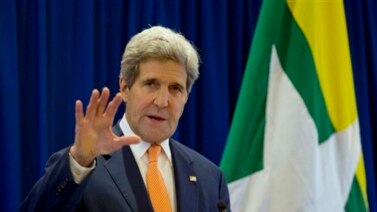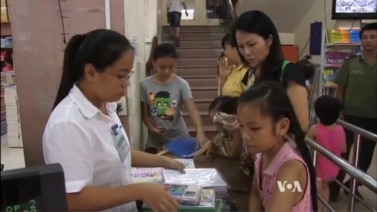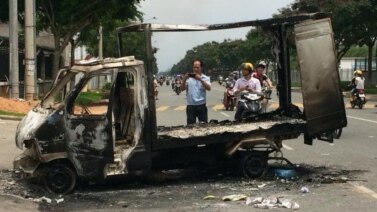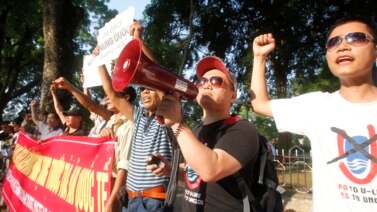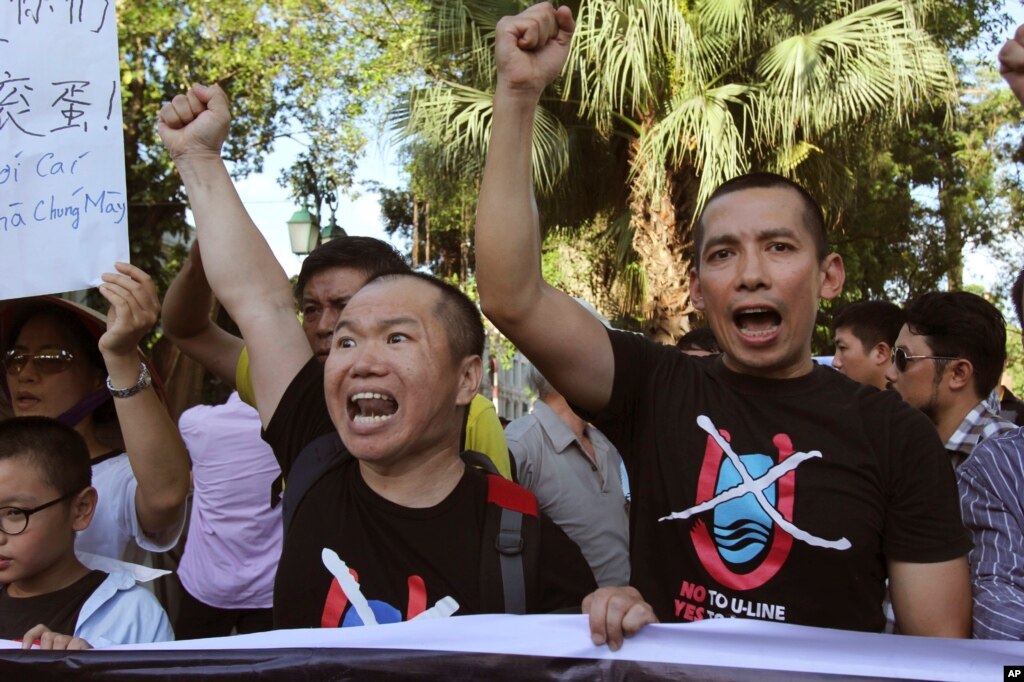
Last month, Vietnam sent a Communist Party official to China in an effort to reduce tensions between the two countries. Relations worsened three months ago when China deployed an oil rig to the South China Sea. The equipment was set up near Vietnam’s coast, in waters claimed by Vietnam. The move led to deadly riots in Vietnam and hurt relations between the countries.
When the Vietnamese official traveled to Beijing last week, experts said it might be a sign that the two countries want to improve relations. Le Hong Anh spent two days in China, and met with Chinese President Xi Jinping. He reportedly told the president that “a neighbor cannot be moved away, and it is in the common interests of both sides to be friendly to each other.”
Vietnam’s Ministry of Foreign Affairs said the two countries will continue to move toward what it called “stable development.” A Foreign Affairs Ministry official spoke to reporters in Hanoi.
He said the two countries will continue to improve cooperation in diplomacy, defense, security and other areas. They include the economy, trade, law implementation and humanitarian issues.
The deployment of the Chinese oil rig in May worsened years-long disputes over control of islands in the South China Sea. The move incited anti-China protests across Vietnam. This led to deadly riots in several industrial zones.
China withdrew the oil rig on July 15, just before a powerful storm moved through the area.
Carl Thayer is a professor at the University of New South Wales, in Australia. He says the visit by Le Hong Anh to China is the first step in negotiations about the South China Sea islands.
“Anh’s visit has opened up channels. And I think we’re seeing other lower-level people explore, explore what’s possible. You know, China accepted the apology. I think we’re seeing both sides trying to overcome this but without conceding too much.”
Vietnam is exploring other ways to deal with China.
Several high-level officials from the United States have recently visited Vietnam. They include General Martin Dempsey, the Chairman of the Joint Chiefs of Staff. These visits caused some experts to say Vietnam may be seeking closer ties with the United States as protection against China.
India’s External Affairs Minister has also visited Vietnam recently. India’s President Pranab Mukherjee is to visit the country later this month.
U.S. Senator John McCain was in Hanoi last month. He said he believes the United States will ease restrictions on the sale of lethal weapons to Vietnam.
Jonathan London is a Vietnam expert. He teaches at City University in Hong Kong. He says that if the weapons ban is lifted, it would, in his words, “symbolize a real change in the two countries’ relations.”
“Vietnam stands to gain considerably from U.S. intelligence and U.S. expertise and know-how with respect to maritime affairs.”
Carl Thayer says Vietnam is seeking to improve its relations with the United States and other countries as a way of, in his words, “bargaining” against China.
“China keeps warning them about moving too close to the U.S., but that doesn’t stop them from working towards Japan, which they’ve already done, and India if India is willing to play the game.”
Jonathan London says he does not believe anyone in Vietnam thinks relations with China are as good as they could be. And he says he cannot be sure that relations are improving.
“After all, this was a representative not of Vietnam but of the General Secretary of the Communist Party of Vietnam, and the way that China operates -- as we’ve seen -- is to, you know, say one thing and do another, and I think, you know, Vietnamese of all brands are aware of this.”
He says the two countries negotiate in secret, so it is not possible to know how the two countries really feel about each other.
I’m Christopher Cruise.
Correspondent Marianne Brown reported this story from Hanoi. Christopher Cruise wrote it for Learning English. George Grow edited it.
Words in the News
tense - adj., having fear or concern; dangerous; opposite of calm
neighbor - n., a person or country that is next to or near another
deployment - v., to move forces, weapons or equipment into position
visit - v., to go to or come to a place for a short time for friendly or business reasons
exploring - v., to travel in a place that is not well-known to learn more about it; to make a careful search; to examine closely
Now it’s your turn to use these Words in the News. In the comments section, write a sentence using one of these words and we will provide feedback on your use of vocabulary and grammar.
